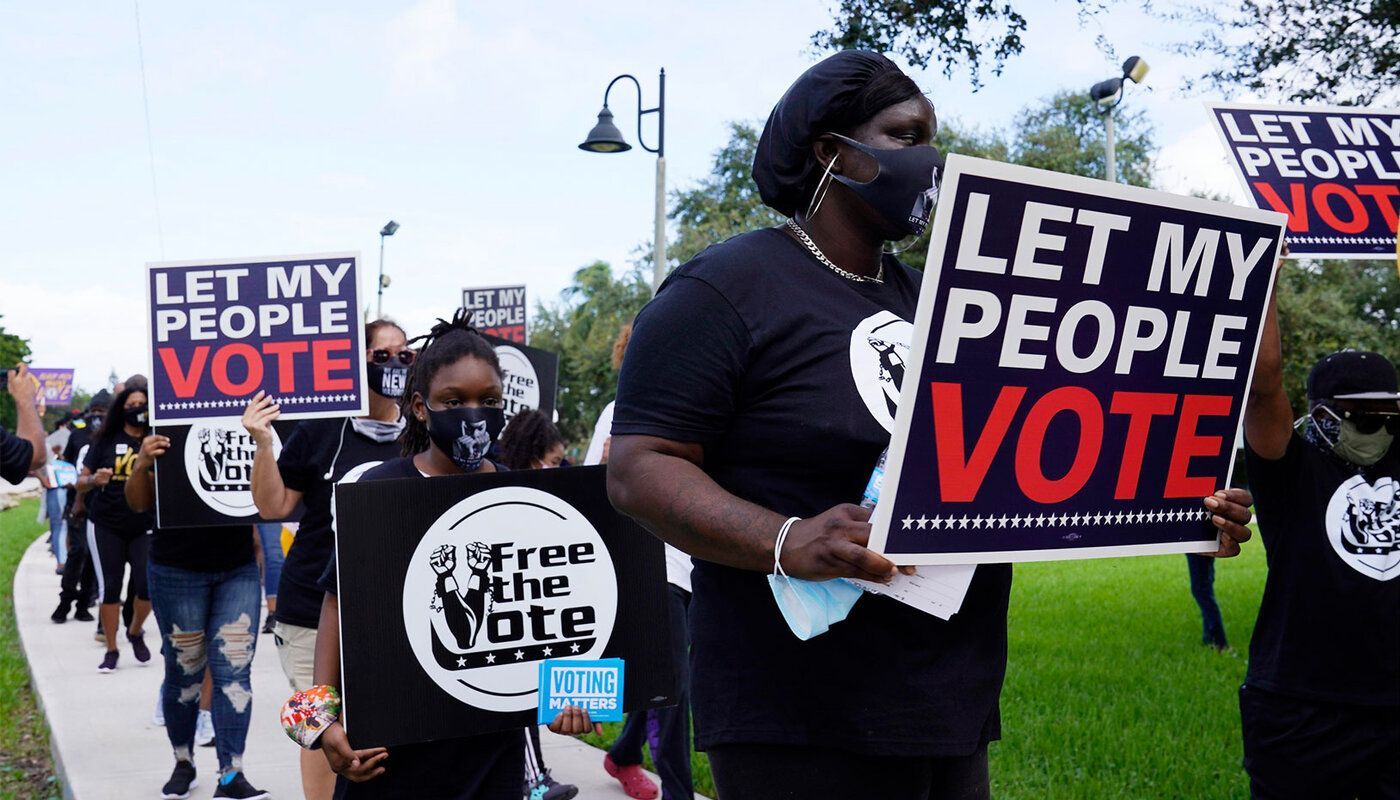Congress Can Restore Voting Rights for 3.5 Million Americans
Bill introduced in US Senate would lift past felony voting restrictions

Over the last 20 years, there has been significant, bipartisan momentum to restore voting rights to Americans previously convicted of felonies. However, millions of people remain disenfranchised today because of voting dates rooted in Jim Crow era policies. Most of those citizens aren’t in prison. They’re living in and contributing to their communities, yet they’re denied a voice in our democracy. Congress can that by passing the Democracy Restoration Act, a bill introduced last week by Senator Ben Cardin (D-MD) that would allow all Americans who are living in the community to vote in federal elections.
Today, only Maine, Vermont and Washington DC have laws that ensure no disenfranchisement for people with criminal convictions from voting. As a result, as many as 4.6 million people across the country are barred from voting simply because of a past conviction. Most of them, nearly 3.5 million, aren’t incarcerated but they’re still not allowed to vote. The Democracy Restoration Act would remove this barrier to the franchise for those citizens in federal elections.
The burden of criminal disenfranchisement laws in the United States isn’t felt equally among Americans, and that's not accidental. After the Civil War ended slavery, some states, especially in the South, adopted racist laws known as “Black Codes” to target Black citizens. At the same time, many states adopted broad laws that revoked the franchise from anyone convicted of a felony. The goal of these laws was clear: to deny the vote to newly enfranchised Black men. Today, those laws continue to have the same impact. Because of bias in the criminal justice system, Black adults are almost four times more likely than non-Black adults to be disenfranchised because of a past conviction.
Fortunately, there has been bipartisan momentum across the country for restoring voting rights to people with past convictions. From 2018 through 2022, 10 states and Washington, DC, changed their policies through legislation, ballot initiative, or gubernatorial action. This year, Minnesota and New Mexico enacted laws taking effect this summer that will allow everyone who’s living in the community to vote.
This progress, however, hasn’t been without some setbacks. In 2019, shortly after Florida voters approved a state constitutional amendment that restored voting rights to most people convicted of a felony, state lawmakers enacted a law that severely limited the reach of that amendment by requiring the repayment of certain court debts before eligibility is restored. Earlier this year, Virginia Gov. Glenn Youngkin (R) ended his predecessor’s policy of automatically restoring voting rights to people with felony convictions, making Virginia the only state in the country that categorically and permanently bars anyone convicted of a felony from voting. Last month, North Carolina’s supreme court overturned a lower court ruling that allowed 56,000 people on probation and parole to vote.
You can view an interactive map from the Brennan Center for Justice to see your state's current laws on felony voting disenfranchisement.










